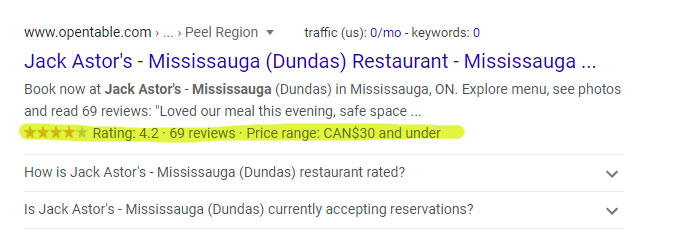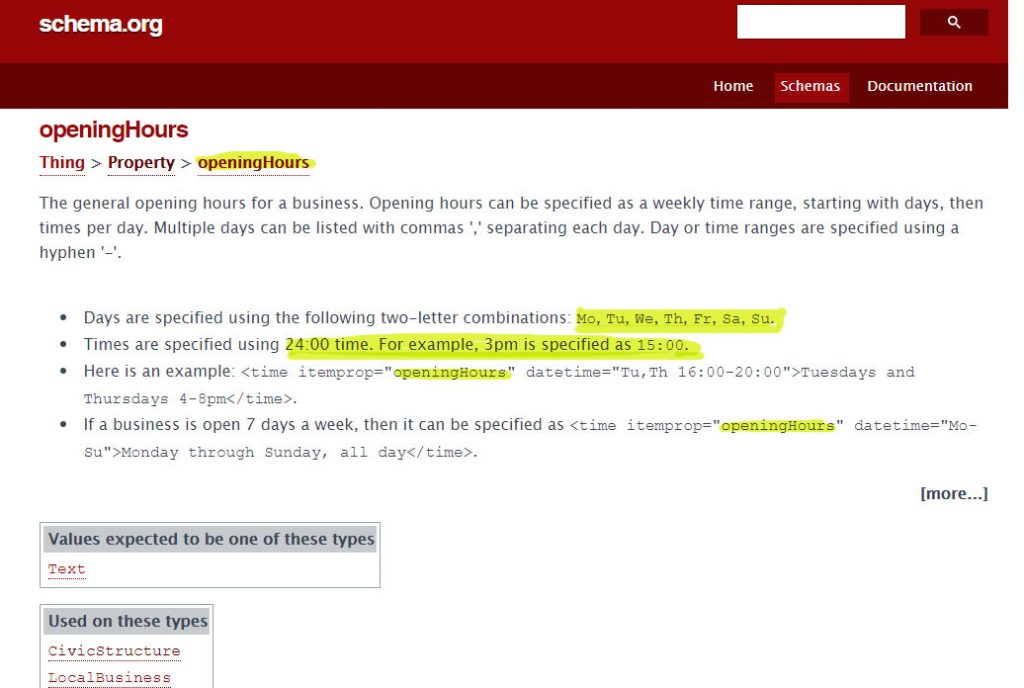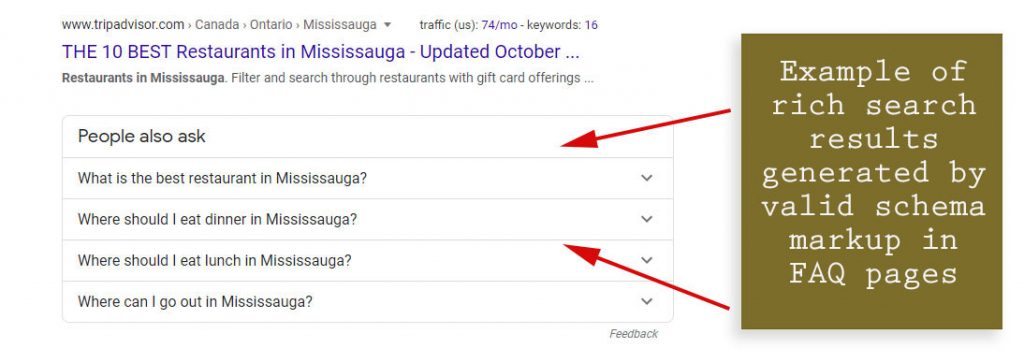Yes, it can. Read on..
Why do you need structured data on your website?
No matter what business you’re in, at a certain capacity you will need to implement structured data or schema markup code on your website. The purpose of structured data is to help bots (machines) better understand what the content of your website is all about. The method of adding structured data depends on which platform your website is built-in. If your website is in WordPress and you are using Gutenberg blocks, it will be easier as each block has its own structured data. Other excellent plugins to consider are Yoast SchemaApp or WordLift.
Google Tag Manager (GTM) is another powerful alternative for adding structured data to your web pages. The format that Google preferes for adding structured data to your website pages is JSON-LD. The other two formats are Microdata and RDFa.
How can structured data help my content appear in search results?
Structured data for local businesses, using the ‘Local Business’ schema markup, when implemented correctly on your website helps Google better understand the type of business you are in, the organizational structure, hours of operation, where your business is located, address and much more. It is a specific structured data type that is added in the code of your web pages so Google doesn’t have to guess when indexing your website.
- Increase organic traffic and your visibility, in local SEO.
- Appear in rich results. The image below shows an example of rich results and the highlighted line, star ratings, number of reviews, price range are all results of valid structured data markup code on that website.

3. Keep up your expertise, authoritativeness and trust (E-A-T)
Let’s say you own a restaurant and you want to make it easier for your local customers to find your opening hours when they search online. You want the machines to understand the exact days and the times you are open. If we look up the openinghours property in shema.org, we see that there is a standardized form of annotating it. It can’t be Opening Hours or Openinghours. It must be exactly how it is provided in the schema vocabulary.
You will hear local business schema also referred to as structured data which basically is a collection of related data items organized in a specific hierarchy. To see the complete hierarchy and the relationship between each schema type, visit this page. Local business schema has many properties. Some of the most common ones which are self-explanatory are listed below:
legalname – The exact name of the registered business
address – The actual mailing address of your business
location – Where a business or organization I located or where an event might be taking place
logo – Your businesses’ logo as an image
telephone – Your businesses’ phone number
geo – the latitude and longitude coordinates or your business. (You can get this information from Google Maps)
areaserved – The geographic area where you offer your services
openinghours – The hours your physical location is open for business
paymentsAccepted – Types of payments your business accepts
To see a full list of organizational schema properties click here
Why add FAQ schema markup to your pages?
People ask questions and search for answers on Google every minute. There are literally tons of questions and well, lots of answers but only the ones that are properly tagged and optimized show up on the top SERPs. Imagine if the search result answer to a question a customer asks appeared as a rich result on the first page! That would drive more traffic to your website, increase your expertise, authority and trustworthiness in your niche, improve Google rankings and have more sales leads either visit your physical location, call you or complete a request a quote form on your website. Optimizing your pages with FAQ schema markup put your website in a strong position to appear on Google’s rich results
First, I would say that organizing your page structure in a questions and answers (FAQ) format is a clever way to structure the page and not only creates a better user experience but also makes it easy for your customers to find answers to what they are looking for before they even pick up the phone. It can also save you and your customers valuable time. It is considered best practice to use schema markup to properly tag your dedicated FAQ pages.
How about the answer to questions that are found on other pages such as business service pages, articles, etc.?
One of my clients asked me once if FAQ markup should be added only to the specific FAQ page or on any of the web pages that would include questions and answers amongst other content?
You probably have other pages on your website that contain questions and answers, and I recommend you use FAQ schema markup in those pages also. This can be beneficial to improve the impressions and click-through rate (CTR) of those pages and increases the possibilities for your page to appear in rich results.
What impact can schema markup have for my local business?
It is best practice to mark up as much as possible in your web pages. Google always makes changes and launches new formats so by using schema markup in your pages, you increase the possibilities to rank in rich results, you make it easier for customers to find you and your website will be well-positioned to handle future updates and changes by Google. If you have an eCommerce site it is recommended to add schema to all product pages using JSON-LD or Microdata formats. Schema markup can also help your business with knowledge graph results
Takeaways
Implementing structured data for local businesses can provide many SEO benefits. Some of the very basic schema markups such as organization, company name address can be done without much effort. In addition, adding structured data to all web pages including product pages, category pages, FAQ, event, How To, Job Posting, Recipes, etc. can give your business a competitive advantage in SEO.
If you have questions, please send me a message or reach out on Twitter.







